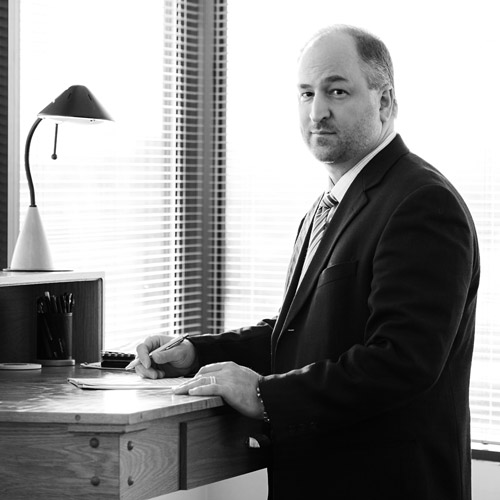Call it a turnaround. Today, General Growth Properties (GGP) is the country’s number two mall operator behind only Simon Property Group. But just six years ago, some industry insiders expected to watch the self-managed, self-administered real estate investment trust’s (REIT) demise. Instead, a new leadership team has helped the company bounce back from bankruptcy and put itself back into position for renewed success.
It’s been anything but a smooth road, though. Marvin Levine, GGP’s executive vice president and chief legal officer, has spent more than three decades in real estate law. Levine joined GGP in 2011 at the behest of longtime friend and new CEO Sandeep Mathrani. Levine credits Mathrani for leading the REIT’s transformation. “He set the tone, and a talented group of executive leaders have worked together to make a big impact,” he says. “It’s been amazing to watch this team work, and I’m thankful to have been a part of it.”
Mathrani, Levine, and an entirely new management team took control of the company on January 17, 2011. Levine remembers the exact date, which he refers to as “the day [his] life blossomed.” Levine has seen just about every kind of deal imaginable during his thirty years as a partner in a New York City firm. He never considered going in-house, but was ready for a change. After accepting Mathrani’s challenge to run the legal department and help reform GGP, Levine has never looked back.
By 2008, when the global economic crisis hit, GGP had untenable leverage and billions of dollars of maturing debt. With the market in decline, GGP found itself unable to refinance its debts. With no remaining options, the company filed for Chapter 11 in April 2009.
The following year, GGP’s new management team hit the ground running—but found opposition. With morale at an all-time low, fatigued employees had grown fearful or suspicious. Still, they pressed on, determined to make a difference. “Everywhere we turned we had something to do,” Levine explains. “But we all trusted our CEO, and we all like each other. When you have that combination with good leaders in an organization, you have a chance at success.”
Almost immediately, Levine and his partners moved to refinance mortgages while rates were at all-time lows. When they stepped in, GGP owned roughly 165 malls, as well as numerous shopping centers and suburban office buildings. Together, they decided to concentrate on becoming a premium mall company, which led them to refocus and shed secondary, lower quality properties. Today, GGP is back in the S&P 500 with about 120 high-caliber retail properties in premium markets nationwide.
As the remade company moves forward, Levine remains committed to taking a team-centric approach. Contrary to most in-house departments (and to how most legal teams work) his team is involved in the foundational business of the company. GGP owns and manages approximately 120 million square feet of retail space. Levine’s legal team handles each lease, and he signs every one personally.
A seventy-five-person legal department works together to manage the high volume of specialized work, and Levine has six direct attorney reports. While his deep experience helps, Levine relies on one key to get the job done. “My six direct reports are really good at what they do,” he says. “That’s my silver bullet.” Levine enables each attorney with the freedom to run and manage his or her own group and trusts the appointed leaders to perform autonomously at a high level.
Sound leadership, Levine has found, requires frequent, clear communication. “You might not agree with everything I say, but you’ll never walk out of my office wondering what I meant by what I said,” he explains. Instead of micromanaging, Levine accepts and considers other perspectives. This approach has paid dividends time and again throughout Levine’s career. Early in his GGP tenure, he wanted to change certain provisions in the company’s standard lease. He proposed changes, but made sure to solicit ideas from the whole team. After twenty minutes of discussion, he decided to leave the original document intact. “If you have good people around you, you need to seek, appreciate, and trust their expertise. That’s why we’re a successful team,” he says.
Although running an in-house legal department is quite different from working in a large firm, one constant remains: experience. “The more you do, the better you are,” he says. After thirty years, he’s encountered almost every surprise the industry has to offer. In the latter stage of his career, he’s looking to impart lessons learned to those who will drive legal at GGP after his departure. To do so, he tries to get to know all of the employees and understand their personal goals and professional motivations.
One special program has particularly helped Levine develop a good working relationship with each member of his team. Every Wednesday, he has an hour-long lunch with several people from his department that are not direct reports. As they eat together, they have an open dialogue. There’s just one rule: nobody can talk about work. Instead, they discuss whose kids are going to college, who just got a dog, or who’s putting an extension on their home, among other topics. “It’s easier to work with people you actually know and like because nobody is afraid to talk and get things done when tough issues arise,” he says. The lunches have helped develop a sense of camaraderie. That bond, joined with a clear vision to move a remade company forward, has GGP back on track.

